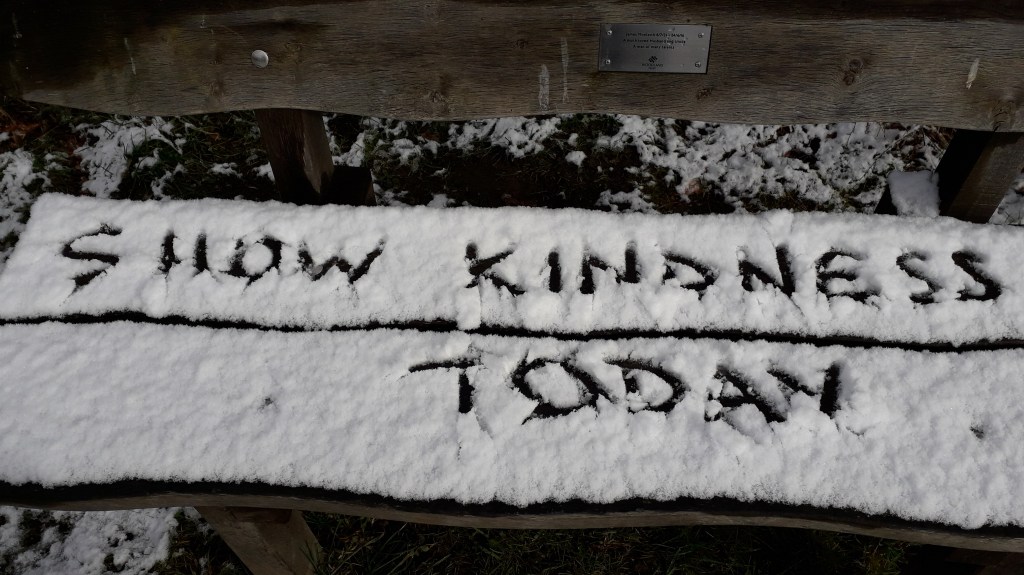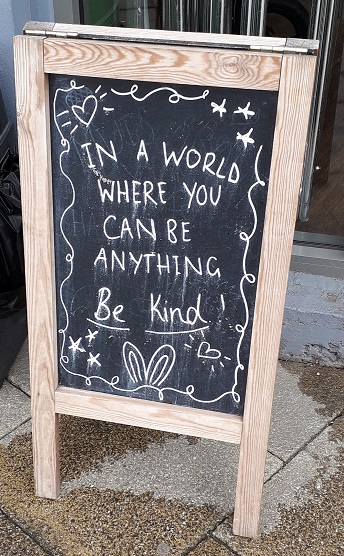I’ve been thinking a lot about compassion recently. It’s something I’ve written about before, but the last six months have given me much more direct experience than I had previously. Having been on the wrong side of a cancer diagnosis in early summer, I’ve received a lot of kindness, help, sympathy and understanding, all tangible displays of love and support. But there have also been a number of people who have shown me immense compassion. They’ve offered a solidarity which has touched, strengthened and healed me in a much deeper way than anything else.
There are seventy-seven uses of the word “Compassion” in English versions of the Bible. Incredibly seventy-six of these are about the compassion of God (or God in Jesus), the only exception being in the parable of the Prodigal Son where the Father had compassion for his lost (prodigal son). And of course, in that story the Father’s response is a picture of God. So, the only uses of the word compassion in the Bible are about the nature of God.
What then is compassion? It seems to me that it differs from sympathy, pity, empathy, concern or assistance because it’s not just about reaching out and doing for someone, but about a complete identification with them and their situation. As Thich Nhat Hanh says, “When we can free ourselves from the idea of separateness, we have compassion, we have understanding, and we have the energy we need to help.” This was the essence of Jesus’s ministry. He identified with the suffering of human beings, especially those on the edges of society, so often defined as unworthy by the seemingly good and acceptable religious community, and he stood alongside the people who suffered. Not as a token of how caring he was, which we can sometimes do in our relationships with those in trouble or need, but as a sign of his oneness with them. He became one with us as he was one with God. It is a willing relationship of equals. There is no power dynamic involved – it’s not about someone being sorry for us and helping us – it is a response of the heart not the mind.
I don’t know if we can cultivate compassion in and of ourselves, but it is the essence of God, so it’s something that every single one of us can be given and receive if we desire it. It does not come without a price though, as the life and death of Jesus showed. His oneness with those in need brought a rejection by the establishment and all their lackies who knowingly or blindly bought into the false reward system they peddled. Ultimately as we know, the compassion of Jesus was something which cost him his life.
There is a good deal of compassion in 12 step programmes. This is not particularly evident amongst active addicts – they may hang out together, but they’re not a unity. It only comes when addicts start to get well by working the programme, which rather than giving them an elevated sense of superiority over the active addict, actually creates a greater sense of one-ness. The programme works in a way which keeps people grounded, recognising the on-going similarity and unity between the active and recovering addict. As Eckhart Tolle says, “Compassion arises when you recognize that all are suffering from the same sickness of the mind, some more acutely than others.” We’re broken and remain broken, lost and without a hope, desperately in need of acceptance and forgiveness but by the grace, mercy and above all compassion of God, we are saved from ourselves and in oneness with each other come to the party, the feast that is given by God.
The Compassion of Christ
Christ is the one who sides with the addict,
Bears the bruises of the beaten wife,
Knows the cold and misery of the homeless,
Surrenders to the loss of control and fears of the person with dementia,
Shares the powerlessness of the little child,
Experiences the isolation and stigma of the mentally ill,
The hopelessness and confusion of those with long covid,
Accepts the shame and humiliation of the poor,
Carries the shackles of the slave,
Grieves with the bereaved,
Suffers the rejection and abandonment of the asylum seeker,
And offers his arms to take the poisons of chemotherapy.
Christ is for ever one with us and for us, in all our adversity and pain.
May we share his compassion with all those we meet on our journey through life.

